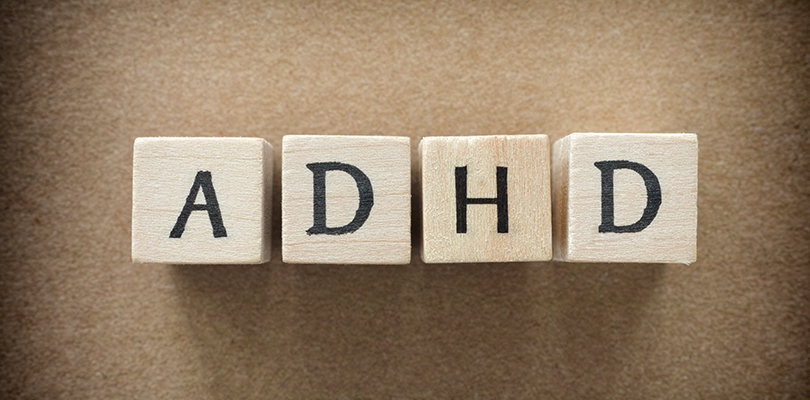ADHD Medication Side Effects
ADHD (sometimes referred to as ADD) is a common disorder that influences a person’s ability to focus and can impact self-control and other typical functions of daily life. The skills most impacted are those categorized as executive function. Those types of skills include memory, focus and organization. Essentially, ADHD is a result of differences in brain wiring and anatomy. While all of us may experience some symptoms of ADHD, a formal diagnosis is given when symptoms are consistent and more regular than those of your peers.
However, the good news is that there are treatment options available for patients who have ADHD. In order to identify which treatment option is best for a particular situation, it’s important to understand the differences in stimulant vs. non-stimulant medications and what those potential side effects may be. Of course, in some cases patients may choose to treat ADHD without medication.
While it is certainly common for adults to have ADHD, people are usually diagnosed as children. Because of the age of the patient, it can be even more important to understand treatments and what some of the side effects of medication may look like. It can be incredibly difficult for the young patient and their parents to go through this process, but for many people, the more they understand, the more they can work through some of the potential side effects.
Read on to learn about the ADHD medication side effects you should be aware of when deciding what treatment options are best for you or your child.
Stimulant Medication
Stimulant medications are the most prescribed medications for ADHD and work by targeting a neurotransmitter in the brain called dopamine. This type of medication is successful in 70-80% of cases, which is why it is prescribed more than non-stimulant medications. However, if stimulant medications are causing unmanageable side effects or are ineffective, doctors may prescribe non-stimulant medications instead.
Stimulant medications are often associated with more mood-altering side effects because they work to stimulate certain parts of the system. There are two types of medications that fall into the stimulant category. They are:
Methylphenidates
Common medications under this category are Ritalin, Focalin, Metadate and Concerta.
Amphetamines
Common medications under this category are Dexedrine, Vyvanse and Adderall.
Unfortunately, there are side effects that patients should be aware of. Among the most common side effects are:
- Nervousness
- Mood swings
- Irritability
- Headaches
- Stomach aches
- Spike in blood pressure
- Dizziness
- Decreased appetite
- Weight loss
- Sleep issues
The most severe and less common side effects include changes in personality and the development of a tic. Tic disorders usually occur in children or teenagers and involve a repetitive, sudden movement or sound that increases with anxiety or excitement. Examples of motor and vocal tics include nose twitching and throat clearing. Studies show that medications don't cause tic disorders but can trigger them in genetically predisposed individuals.
Non-Stimulant Medication
Non-stimulant medication is a newer option for treating ADHD. This type of medication targets norepinephrine, a neurotransmitter that plays a role in executive function. Doing so helps patients control their emotions and movements.
There are several medication options that fall under the non-stimulant medications category for ADHD. Some of the more common medication options include Strattera, Tenex, Intuniv and Kapvay.
The most common side effects of this type of medication include:
- Nausea
- Stomach pain
- Eating issues
- Weight loss
- Fatigue
- Drowsiness
- Moodiness
What You Can Do About ADHD Medication Side Effects
It may feel a little daunting to have so many side effects associated with the medications that are supposed to help the symptoms of ADHD. However, there are some things you can do to reduce, or in some cases, eliminate certain symptoms.
Sensory toys for ADHD may help improve concentration as well as bring about an overall sense of calm. Learn more about how sensory toys work here.
Upset Stomach and Headache
The most common symptoms associated with ADHD medication are nausea and headaches. Usually, these symptoms subside after a couple of weeks on the medication. However, it can be absolutely uncomfortable in the meantime. One of the best ways to reduce these symptoms is by taking the medication with food.
Eating Issues
One of the most discussed symptoms is eating issues. Oftentimes, people simply don’t feel hungry once they’ve taken their medication. This can be a concern for parents if their child is not eating regularly. Keep in mind that the medication can be extended-release which means that if you take it in the morning after breakfast, then you may not be hungry by the time lunch comes around.
It is common for people on ADHD medication to skip midday meals and then be incredibly hungry for dinner. A good idea to curb some of this food avoidance is to keep healthy snacks around and to make sure that the dose is given after breakfast instead of before.
Sleep Issues
Another common concern is sleep disruption. This can impact behavior and the patient's ability to go to school and participate in activities. If an individual has difficulty falling asleep after taking a stimulant medication, they may need to incorporate more relaxation methods into their sleep routine.
Some ideas for relaxation methods include turning on relaxing music or sounds, using calming essential oils, or reading a book. This may take some trial and error to figure out what exactly works for you or your child. However, sleep issues should subside over time.
Reach out to Your Doctor
Some symptoms should be expected when it comes to taking medication for ADHD. However, if a patient experiences ongoing symptoms after a few weeks, then they should discuss their options with their doctor. Oftentimes, medication doses will need to be tweaked until the ideal outcome is achieved.
While this may be an overwhelming and frustrating process, most people are able to find a medication and dosage that works better.
Overview
ADHD is a common but life-altering condition. While the diagnosis itself may be startling, there are effective treatment options available. Keep in mind that the medication process includes a period of trial and error in which the dosage and proper medication will need to be identified.
While symptoms should be expected, severity and occurrence should balance over time. For more information about ADHD and medications for treatment, reach out to your medical professional.







